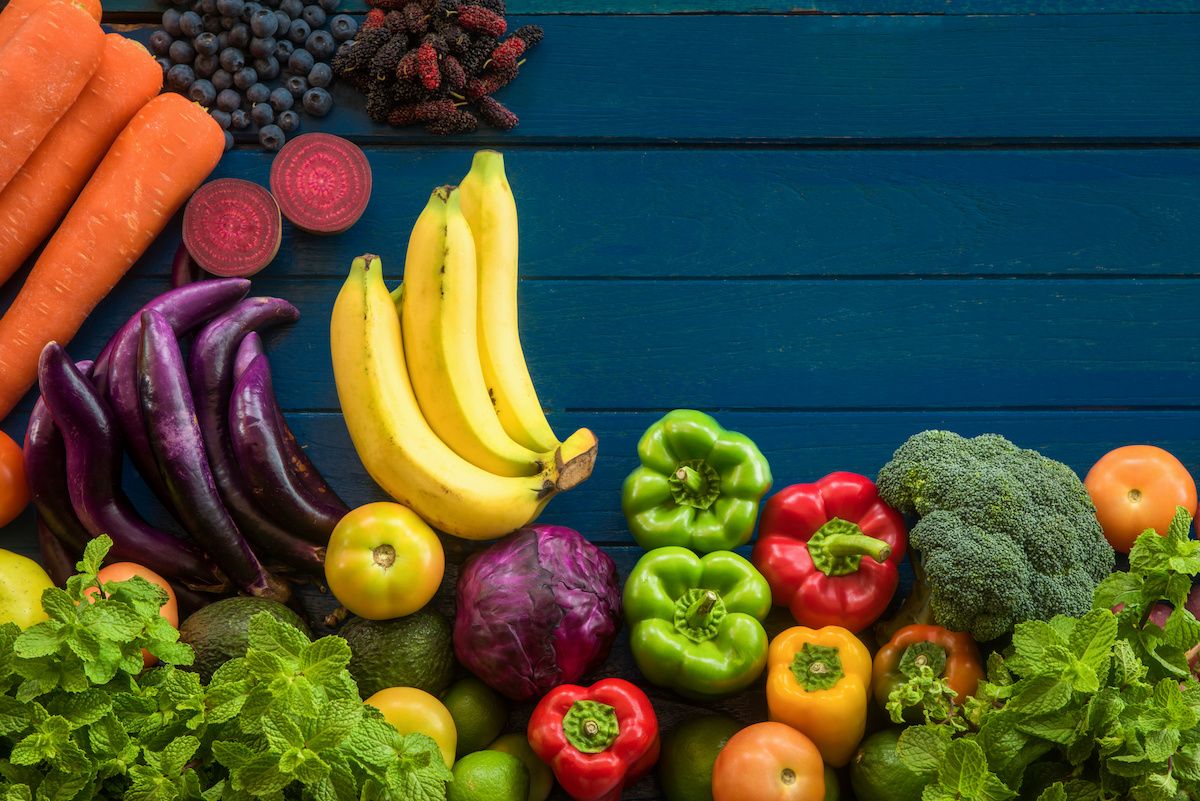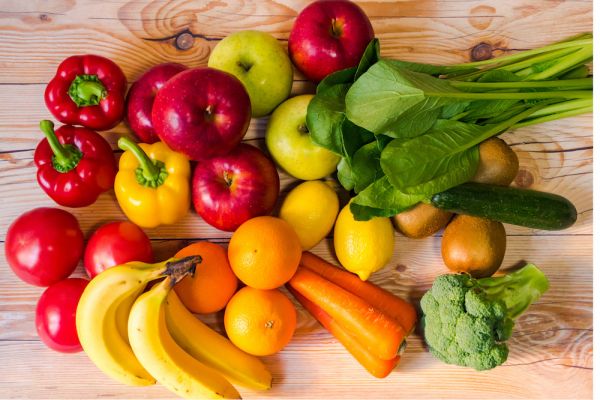Have you ever heard the saying “Eat a rainbow”?
Following this advice and eating a variety of colorful plant-based foods is a great way to benefit from substances called phytochemicals.
Phytochemicals,also called phyonutrients, are compounds in plants. (Phyto means “plant” in Greek.) Plant-based foods such as fruits, vegetables, whole grains, nuts, seeds and legumes all contain phytochemicals. They give plants their color, flavor and aroma. It’s thought that there are thousands of different phytochemicals, and scientists are just starting to discover the different roles these substances may play. However, we’re learning that in addition to the roles they play in plants, they may also have health benefits for us when we eat them!
Much of the current evidence on the benefits of phytochemicals has come from observing people who eat mainly plant-based diets. These people have been shown to have significantly lower rates of certain types of cancers and heart disease. The American Institute for Cancer Research recommends eating a mostly plant-based diet for cancer prevention and throughout a cancer journey as medically appropriate. In addition to phytochemicals, plant-based foods provide a range of other nutrients such as fiber, vitamins and minerals.
Currently, there is no conclusive evidence that any one specific phytochemical is guaranteed to reduce cancer risk or help eliminate cancer if you have it, promising evidence indicates that phytochemicals may have the potential to:
- help your immune system work as it should
- Protect cells and DNA from damage that may lead to cancer
- Reduce inflammation that may cause cancer or make it grow
- Slow the growth rate of some cancer cells
- Help regulate hormones
The chart below shows some examples of specific phytochemicals and their potential benefits, along with some of the foods in which they’re found.
Phytochemical | Foods | Potential benefit |
|---|---|---|
Carotenoids (beta carotene, lycopene) | Cooked tomatoes, orange squash, carrots, sweet potatoes and green plants, such as broccoli | May inhibit cancer cell growth, reduce risk of cardiovascular disease and boost immunity |
Flavonoids | Berries, apples, citrus fruits, soybeans, coffee, tea, walnuts, whole grains | May fight inflammation, decrease damage to DNA and reduce tumor growth |
Anthocyanins | Berries | May help lower blood pressure |
Isothiocyanates (sulforaphane) | Cruciferous vegetables, such as broccoli, cauliflower and kale | May protect against cancer and cardiovascular disease |
Lutein and zeaxanthin | Dark, leafy greens, such as spinach and chard | May promote eye health |
Each plant food has many different phytochemicals; there are more than 100 phytochemicals in a carrot alone! It’s important to note, though, that there will never be just one vital food ingredient, herb or nutrient that you need to include in your diet for great health benefits. All of these phytochemicals have different functions in the body, and many of them complement one another. Evidence shows that taking phytochemicals in supplement form may not provide the same benefits as eating the whole plant foods, because phytochemicals in supplements may not be as easily absorbed by the body as those from food sources. Certain supplements may also interact with your cancer treatments, so be sure to check with your medical team before starting any new supplements.
So the best way to ensure that you’re getting a variety of phytochemicals and other essential nutrients in your diet is to eat a rainbow of plant-based foods! The fruits and vegetables with deeper and brighter colors or with stronger flavors are often the best sources of phytochemicals. Larger concentrations of phytochemicals are also often found in the skins or peels of fruits and vegetables.
Try to eat different colors of foods throughout the day, and remember to always fill about two-thirds of your plate with plant-based foods!
Even more nutrition information
Get more healthy eating tips from Roswell Park's Nutrition Department.



